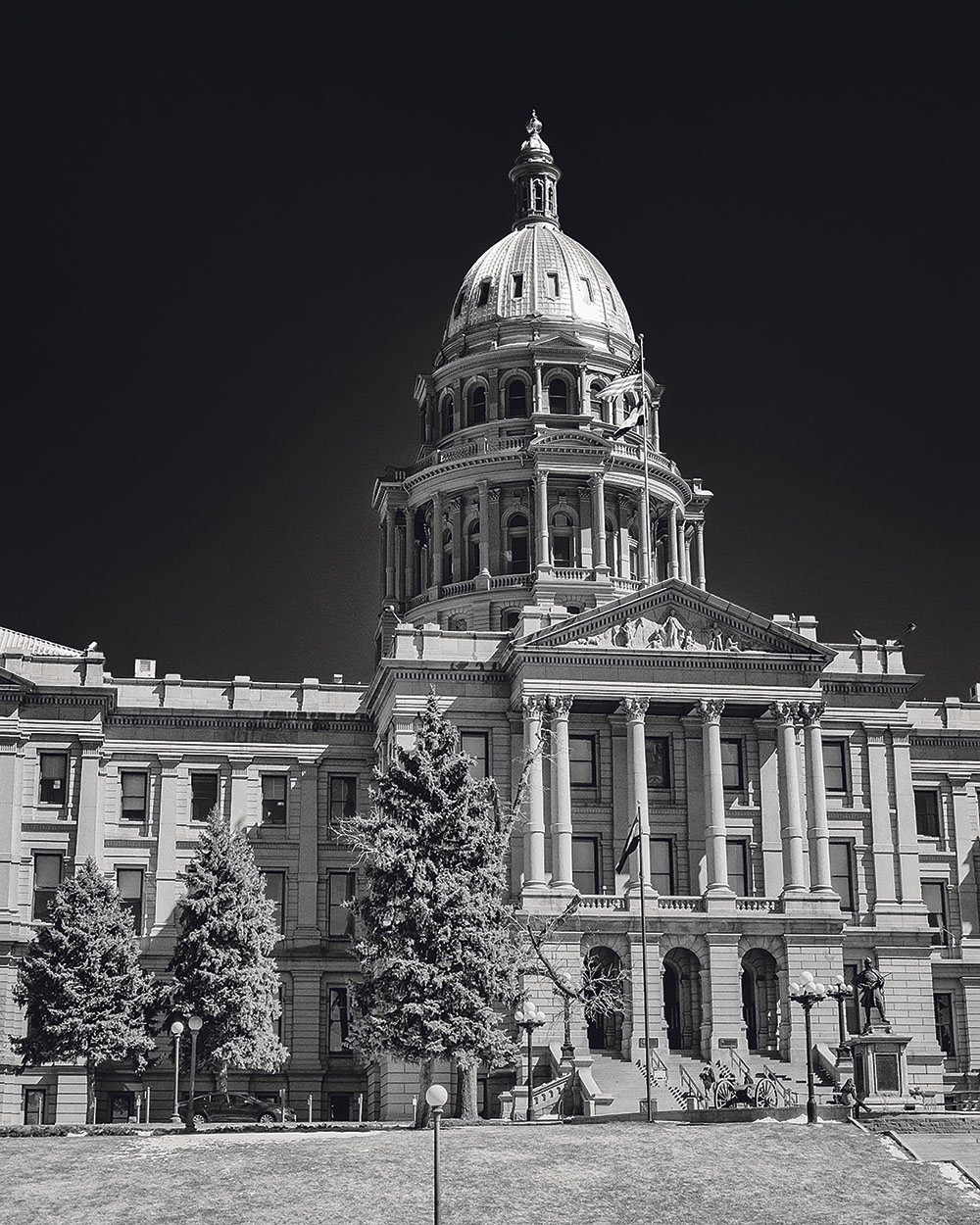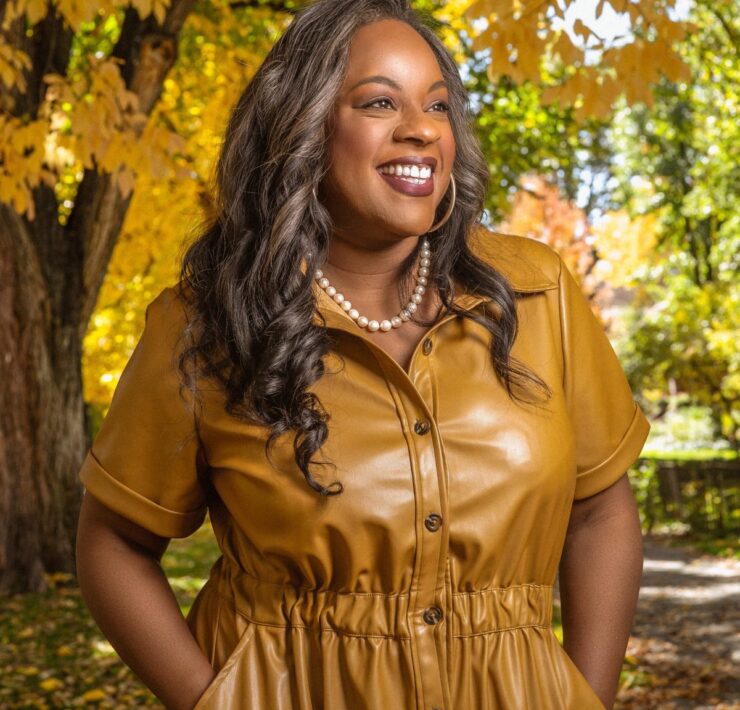Storming the Capitol: What LGBTQ Lobby Day Fought For

The Capitol building is beautiful. The golden domes that sit majestically in Capitol Hill shine a bright light into the Mile High City. On February 26, the beauty was made even more so by the number of LGBTQ people in its hallways, decorated with rainbow flags and pins, buzzing with excitement and nervousness. They spent the morning bracing themselves, their hearts beating so loud they could drown out words. That day, the Capitol became their space, and they made the rules.
Everyone was impressed by the 12-year-old girl who stood up to a rather unfriendly senator as he peered down at her during an earnest explanation of why everyone deserves equal rights. She was met with cheers and congratulations when her mother, grinning, recounted what happened.
Equally powerful was the woman who squealed with excitement as she welcomed a hug from Representative James Coleman. She voted for him, granting him the authority to protect her rights, but she didn’t really know him until that day. She would never have realized how down-to-earth he was had she not gotten to talk to him face-to-face. Seeing legislators as people with personal values and concerns is important to constituents.
Indeed, fellow lobbyist Charles Turlington felt empowered by Lobby Day and the idea that, as he put it, “Me, myself, and I could just walk into the Capitol, shake people’s hands, and talk to them.”
Constituents had the opportunity to snag legislators right off the floor during a brief recesses and ask them to share their opinions on the LGBTQ-related bills of this legislative session: HB 18-1046 New Birth Certificate to Reflect Gender Change, HB 18-1245 Prohibiting Conversion Therapy on Minors, and HB 18-1206 Live & Let Live Act.
Turlington asked Coleman what he thought about the Live & Let Live Act, which would allow businesses to turn away customers for any reason on the basis of religious beliefs. As a deeply religious man, Coleman expressed to Turlington his personal opinions on why Christianity and LGBTQ folks can exist in harmony, and how he didn’t understand how businesses could afford to turn customers away.
“Your business must make a lot of money if you can afford to turn someone away just because they’re LGBTQ,” he said.
His message moved Turlington, who was impressed by the way Coleman’s opinions seemed to be “coming from a place of love and acceptance.”
Representative Jovan Melton also explained how he was troubled by cases like Masterpiece Cakeshop v. Colorado Civil Rights Division and legislation like Live & Let Live Act, which would permit widespread, categorical denials of services, because they were eerily reminiscent of stories his grandfather told him from the 50s and 60s in the southern United States.
“That’s absolutely where we were 60, 70 years ago,” Melton said. “These bills are not moving us forward toward real equality. Civil rights doesn’t just mean for black people, people of color; it means for everyone that could possibly be discriminated against.”
As an African American truck driver from Arkansas, Melton’s grandfather was frequently prohibited from eating in the front of restaurants and often even denied service altogether, being told at one restaurant that they would not accept his business because they served “white-only pies.”
“My grandfather’s white pies are today’s straight cakes,” he said.
Representative Leslie Herod, a member of Colorado’s LGBTQ Caucus, spoke briefly, urging constituents to stay politically informed and active, because the legislative process is an arduous and slippery one, making progress susceptible to attacks.
“I think the tide is turning,” she said smiling. “But, we know that our issues are much bigger than just marriage [equality]. We are impacted by everything that happens in this building.”
Shortly thereafter, Herod and other members of the LGBTQ Caucus, including Senator Joann Ginal, Representative Paul Rosenthal, and Representative Daneya Esgar, made arguments for the New Birth Certificate to Reflect Gender Change, the first Colorado bill directly focused on trans rights that would bring Colorado law in line with federal policy for transgender Coloradans who want to update the gender on their birth certificate.
The bill would significantly decrease the number of hoops transgender Coloradans currently have to jump through in order to change their genders on their birth certificates, and these legislators strategically pointed out how this modification would actually be a move toward less government involvement, a value of many Republican legislators and their constituents.
Current Colorado law requires a person to have sex reassignment surgery (SRS) in order to update the gender marker on their birth certificate to accurately reflect their lived gender. For many transgender people, this means the genders on their birth certificates will never be updated to reflect who they are because many people do not want, cannot afford, or do not need surgery.
These arguments were apparently successful, as the lobbyists watched the bill pass the House. The startlingly underwhelming delivery of the result was met with cheers from the gallery.
“In all honesty, I thought it was a little bit inspiring to hear the arguments on the other side,” Turlington said. He emphasized that those perspectives show which conversations we need have, and how to have them, “without going into defense mode.”
“I think that finding common ground is the lesson, as a country, that we’re learning right now—or needing to learn,” he said.
The third bill, HB 18-1245 Prohibiting Conversion Therapy on Minors, has been shot down in the capitol for three consecutive years. The bill would prohibit licensed doctors, psychiatrists, and therapists from using conversion therapy techniques on anyone under the age of 18.
Conversion therapy is a form of psychotherapy that aims to suppress feelings of same-gender attraction with the goal of changing a person’s sexual orientation. It’s currently illegal to practice the therapy on minors in California, Oregon, Illinois, New York, New Jersey, and Vermont, and Washington State is working on similar legislation.
“This bill will safeguard LGBTQ minors from being subjected to harmful and abusive practices trying to change who they are or who they love,” said One Colorado’s political director Laura “Pinky” Reinsch. “LGBTQ young people who undergo this so-called ‘therapy’ are proven to be at risk for long-term depression, guilt, rejection, and even a heightened risk for suicide.”
“Despite the fact that nearly all of the leading mental health organizations in the country, and in Colorado, reject the practice of conversion therapy, the Republican members of the committee chose [in the past] to disregard science and the heartbreaking, emotional stories of those who came to testify in support of the ban.”
Currently, the bill has passed the House and is pending approval from the Senate.
These are the bills those queer lobbyists filled the halls of the Capitol to support or destroy. The force of so many people determined to be vulnerable for the sake of their community is one that will only grow stronger as the fight continues.










